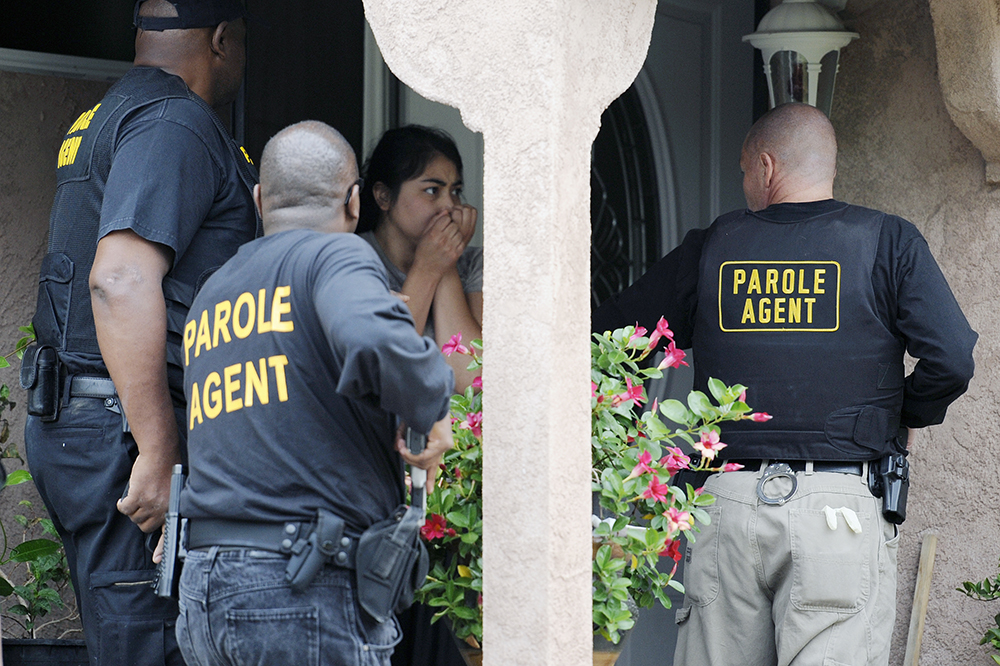
In State v. Livingston, the WA Court of Appeals Division II held that evidence collected during a warrantless search of the defendant’s vehicle following the defendant’s arrest on a D.O.C. warrant is only admissible if there is a nexus between the community custody violation and the searched property.
On May 29, 2014, DOC Officer Thomas Grabski observed a person, later identified as Darian Livingston, who he recognized as having an outstanding DOC arrest warrant; Livingston was washing a vehicle alone at a car wash. Officer Grabski called for assistance, and two more officers arrived to assist him.
When the additional officers arrived, Livingston was talking with a person on a motorcycle. The person on the motorcycle drove away when the officers approached. Livingston was the only person near the vehicle. After confirming Livingston’s identity and the warrant, the officers arrested Livingston.
The officers then asked Livingston about the vehicle he had been washing. He said it belonged to his girlfriend who had gone to a nearby store, but he later admitted that his girlfriend was in Seattle and could not pick up the vehicle.
Livingston also admitted that he regularly drove the vehicle and that he had placed the key on the motorcycle when he first saw the officers. At the time of his arrest, Livingston was on active DOC probation. The DOC warrant issued in his name said there was “reasonable cause to believe Mr. Livingston] violated a condition of community custody.
DOC Officers Grabski and Joshua Boyd conducted a “compliance search” of the vehicle. When they conducted the search of the vehicle, the officers did not have any information about the nature of the violation that triggered the issuance of the DOC warrant.
Inside the vehicle, the officers found mail and other documents with Livingston’s name on them, a single pill, and a prescription bottle containing eight pills. In the vehicle’s trunk, the officers found a black backpack containing scented oils, a loaded .40 caliber handgun, a box of ammunition, and more mail addressed to Livingston. During booking, Livingston revealed that he was also carrying a baggie of cocaine on his person.
The State charged Livingston with first degree unlawful possession of a firearm (count I), unlawful possession of a controlled substance with intent to deliver (cocaine) (count II), bail jumping (count III), unlawful possession of a controlled substance (oxycodone) (count IV), and unlawful possession of a controlled substance (hydrocodone/dihydrocodeinone) (count V). Before trial, Livingston moved to suppress the evidence discovered during the vehicle search. The judge denied Livingston’s motion. He appealed.
Livingston argued that the trial court erred in deciding that the vehicle search was lawful under RCW 9.94A.631(1) because the officers had a reasonable belief that he had violated a community custody condition or sentencing requirement. Instead, he asked the Court of Appeals to follow State v. Jardinez and hold that to justify such a search, the property searched must relate to the violation that the community custody officer (CCO) believed had occurred.
First, the Court of Appeals reasoned that both article I, section 7 of the Washington Constitution and the Fourth Amendment to the United States Constitution prohibit warrantless searches unless an exception exists. Washington law recognizes, however, that probationers and parolees have a diminished right of privacy that permits warrantless searches based on reasonable cause to believe that a violation of probation has occurred. This reduced expectation of privacy for parolees is recognized in RCW 9.94A.631(1), which states,
If there is reasonable cause to believe that an offender has violated a condition or requirement of the sentence, a [CCO] may require an offender to submit to a search and seizure of the offender’s person, residence, automobile, or other personal property.
Second, the Court reasoned that pursuant to State v. Jardinez, there must be a nexus between the violation and the searched property. In Jardinez, the defendant’s parole officer searched his iPhone for no reason and found evidence linking Mr. Jardinez to criminal behavior. He was charged and convicted. On his appeal, the Court of Appeals examined the following official comment from the Sentencing Guidelines Commission (Commission) on RCW 9.94A.631(1):
“The Commission intends that [CCOs] exercise their arrest powers sparingly, with due consideration for the seriousness of the violation alleged and the impact of confinement on jail population. Violations may be charged by the [CCO] upon notice of violation and summons, without arrest. The search and seizure authorized by this section should relate to the violation which the [CCO] believes to have occurred.”
Noting that Washington courts “have repeatedly relied on the Commission’s comments as indicia of the legislature’s intent,” Division Three concluded that the italicized portion of this comment “demands a nexus between the searched property and the alleged crime.” Following Jardinez, the Court of Appeals held that the trial court erred when it failed to consider whether there was a nexus between the violation and the searched property.
With that, the Court affirmed Mr. Livingston’s bail jumping conviction, count III, and his unlawful possession of a controlled substance conviction charged as count II. However, the court reversed the order denying Livingston’s motion to suppress the evidence discovered in the vehicle search and remanded Livingston’s case back to the trial court for further proceedings consistent with this opinion.
My opinion? Good decision. I’ve discussed Jardinez in another post, and found that opinion compelling as well. Excellent use of prior precedents and stare decisis.
Please contact my office if you, a friend or family member are charged with a crime. Hiring an effective and competent defense attorney is the first and best step toward justice.








